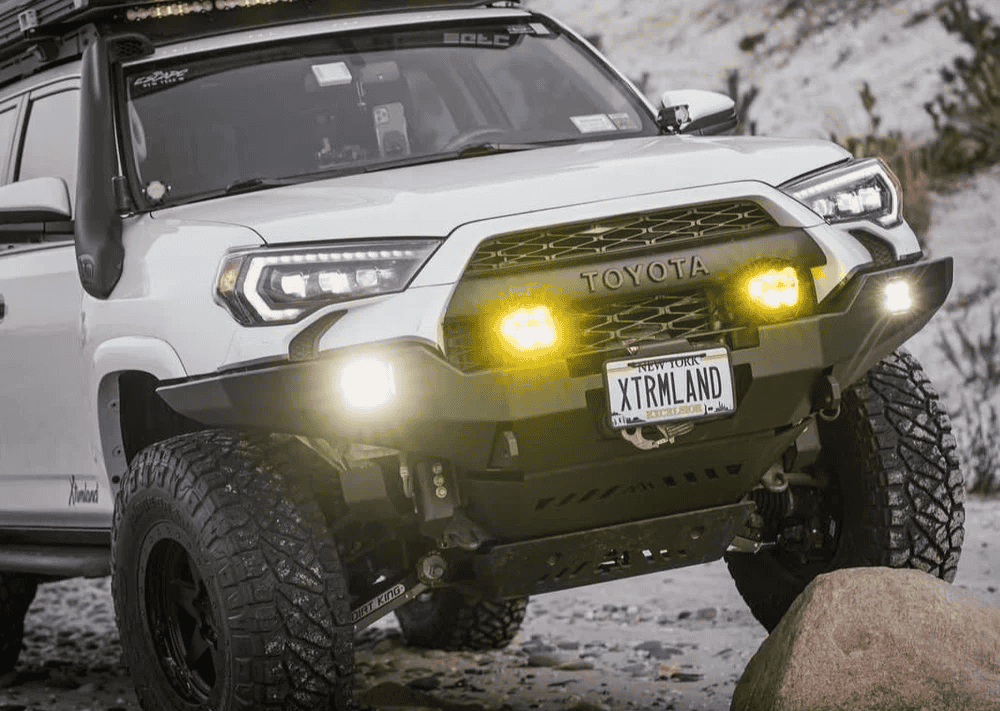Overland Vehicles

A complete overland truck build starts with a simple question: where are you going and how long will you stay off grid. Let that answer drive every decision. Choose a platform with the payload to carry people, fuel, water, armor, and camp systems without exceeding the manufacturer weight rating. Shorter wheelbases turn tighter in canyons and forests, while longer beds reward you with storage volume and a calmer highway ride. Prioritize reliability and parts availability when traveling far from home. Keep the build honest by tracking weight and power needs from the start.
Work from a realistic packing list. Add armor, recovery tools, spare tire, water, fuel, fridge, batteries, and canopy weight to your baseline curb weight. Subtract this total from the truck’s payload rating to leave a safety margin. Match axle ratios, transmission cooling, and brakes to the final tire diameter and gross weight. If you plan heavy water and multi day supplies, a three quarter ton truck often provides a better margin for performance and durability than a half ton option.
Suspension defines ride and control when the truck is loaded. Choose spring rates and dampers that are tuned for your final build weight, not an empty truck. Tires are your traction contract with the terrain, so pick a construction and tread that suits your trails and climate. A modest lift can clear tires and improve geometry, but chasing height alone hurts stability and range. Skid plates, rock sliders, and a quality front bumper protect critical systems. Recovery anchors and a winch add confidence when the trail turns sloppy.
For graded dirt and long washboard, a comfort focused damper with heat management is invaluable. For technical trails, look for controlled low speed damping and generous articulation. Tire diameter influences gearing and braking, while sidewall strength protects against cuts. Choose a wheel with proper offset to maintain scrub radius and steering feel. Keep unsprung mass down to preserve ride and reduce wear on steering and braking components.
Power, water, and storage make remote days comfortable instead of complicated. A dual battery setup with a smart charge system ensures the starter battery remains healthy. Add solar or alternator based charging to support a fridge and lights. Use a fused distribution panel with labeled circuits to simplify diagnostics on the trail. For water, integrate food grade tanks, filtration, and quick access plumbing. Storage should keep center of gravity low and secure heavy items close to the cab.
A compact compressor fridge eliminates ice management and food waste. Pair it with a lithium house battery sized from real device loads. Solar offers silent replenishment when parked, while a high output alternator covers cloudy travel days. Water capacity depends on crew size and climate; plan for cooking, cleaning, and hydration with margin. A simple gravity system is reliable, while a small pump and sprayer add convenience without much complexity.
Reliable navigation blends paper maps, offline digital maps, and a dash mount that stays steady over bumps. Communications can range from simple handheld radios to a vehicle mounted unit with an external antenna for clarity. A satellite messenger provides check ins and emergency reach from remote valleys. Fire extinguisher placement, a trauma kit, and a well secured jack are not optional. Aim your auxiliary lights correctly and avoid glare that blinds others on the trail or highway.
The smartest overland builds take shape in phases. Start with tires, recovery tools, and basic protection. Add suspension tuned to your measured weight, then power and storage tailored to your actual packing habits. This approach reduces do overs, saves money, and leads to a truck that feels composed rather than overloaded. Keep the tool kit current with the hardware you actually carry onboard.
When it is time to transform a plan into a dependable truck, work with a shop that designs around your route, payload, and comfort needs. OZK Customs builds complete overland systems and targeted upgrades that stay within manufacturer ratings while adding real trail capability. Explore our current approach to Overland rigs and see how a Custom overland upfit can turn your travel checklist into a clean, serviceable install. Curious about process and craftsmanship. Learn more at Why choose OZK Customs.
We are based in Fayetteville Arkansas, central to many trail networks and test grounds, which means you can pick up your finished truck and immediately put it to work. Our team handles suspension tuning, electrical power systems, storage solutions, lighting, armor, and communications with an eye on safety, reliability, and comfort for long miles. Share your route, crew size, and gear list, and we will map a build that feels seamless from the first turn of the key.
Your build should feel natural on the trail and effortless at camp. Our team designs and installs complete overland systems or targeted upfits that match your travel style, payload, and budget. Share your plan, we will turn it into a capable rig you can trust on day one.
ADDRESS:
6159 E Huntsville Rd, Fayetteville, AR 72701
PHONE:
(479) 326-9200
EMAIL:
info@ozkvans.com